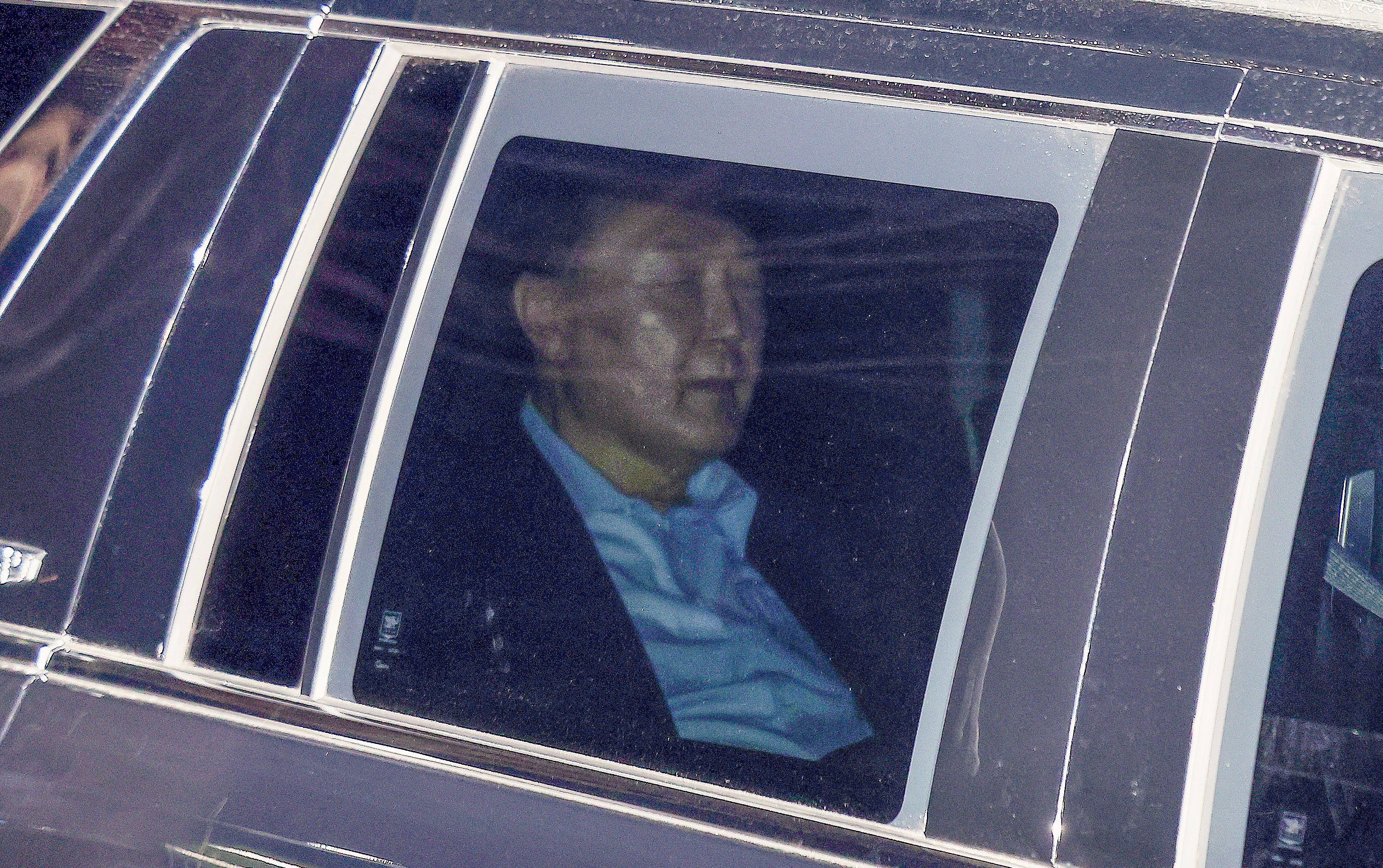Lawyers of detained South Korean president say he will reject questioning by investigators
Lawyers representing South Korea’s impeached president say he will refuse further questioning after being detained by anti-corruption officials over his ill-fated declaration of martial law last month, maintaining that the investigation is illegal

Your support helps us to tell the story
From reproductive rights to climate change to Big Tech, The Independent is on the ground when the story is developing. Whether it's investigating the financials of Elon Musk's pro-Trump PAC or producing our latest documentary, 'The A Word', which shines a light on the American women fighting for reproductive rights, we know how important it is to parse out the facts from the messaging.
At such a critical moment in US history, we need reporters on the ground. Your donation allows us to keep sending journalists to speak to both sides of the story.
The Independent is trusted by Americans across the entire political spectrum. And unlike many other quality news outlets, we choose not to lock Americans out of our reporting and analysis with paywalls. We believe quality journalism should be available to everyone, paid for by those who can afford it.
Your support makes all the difference.Lawyers representing South Korea’s impeached president said Thursday he will refuse further questioning after being detained by anti-corruption officials over his ill-fated declaration of martial law last month, maintaining that the investigation is illegal.
President Yoon Suk Yeol exercised his right to remain silent as he underwent more than 10 hours of questioning on Wednesday at the headquarters of the Corruption Investigation Office for High-Ranking Officials, following a massive law enforcement operation to detain him at his official residence in Seoul.
Investigators are expected to move to place him under arrest in the coming days.
The anti-corruption agency, which is leading a joint investigation with the police and the military over whether Yoon’s martial law declaration amounted to attempted rebellion, has 48 hours either to request a court order for his formal arrest or to release him.
Yoon’s lawyers have argued that the detention warrant issued by the Seoul Western District Court is invalid and have asked the Seoul Central District Court to consider his release.
The clock for the arrest warrant is on hold while the court reviews his petition, which can take up to 48 hours. There is a possibility that Yoon could attend a hearing at the Central District Court as part of the review. Court records showed that the hearing was set for 5 p.m. Thursday, indicating that the decision could come sometime during the evening.
Yoon set off the country's most serious political crisis since its democratization in the late 1980s when he attempted to break through gridlock in legislation by declaring martial law and deploying troops around the National Assembly on Dec. 3. The standoff lasted only hours before lawmakers managed to get through the blockade and voted to lift the measure.
His presidential powers were suspended when the opposition-dominated assembly voted to impeach him on Dec. 14, accusing him of rebellion. His fate now rests with the Constitutional Court, which has begun deliberating on whether to formally remove Yoon from office or reject the charges and reinstate him.
Yoon and his allies have defied efforts to investigate his role in the chaos of Dec. 3. He ignored requests to appear for questioning for weeks, remaining in his official residence to avoid detention as his lawyers turned away police, citing a law that protects locations potentially linked to military secrets from search without the consent of the person in charge — Yoon himself. They also said that the anti-corruption agency had no legal authority to investigate rebellion allegations.
Yoon also resisted one attempt to detain him as the presidential security service barricaded the residence. He was finally brought into custody after hundreds of anti-corruption investigators and police raided the presidential compound for some five hours in a second attempt.
In a video message recorded shortly before he was escorted to the headquarters of the anti-corruption agency, Yoon lamented that the “rule of law has completely collapsed in this country.” He echoed the arguments of his lawyers that the anti-corruption agency does not have the authority to investigate his actions, but said he accepted detention to prevent violence.
Following Yoon’s questioning on Wednesday, his lawyers requested the Constitutional Court to delay a hearing scheduled for Thursday, citing the complications created by his detention. It remains possible for Yoon to exercise his right to attend, even while under detention.
If a court grants a warrant for Yoon’s formal arrest, the anti-corruption investigators can extend his detention to 20 days, during which it will transfer the case to public prosecutors for an indictment.
If prosecutors indict Yoon on the possible charges of rebellion and abuse of power, he could remain under arrest until the first court ruling, which is typically made within six months, said Park Sung-bae, an attorney specializing in criminal law. Under South Korean law, the leader of a rebellion can face the death penalty or life imprisonment if convicted.